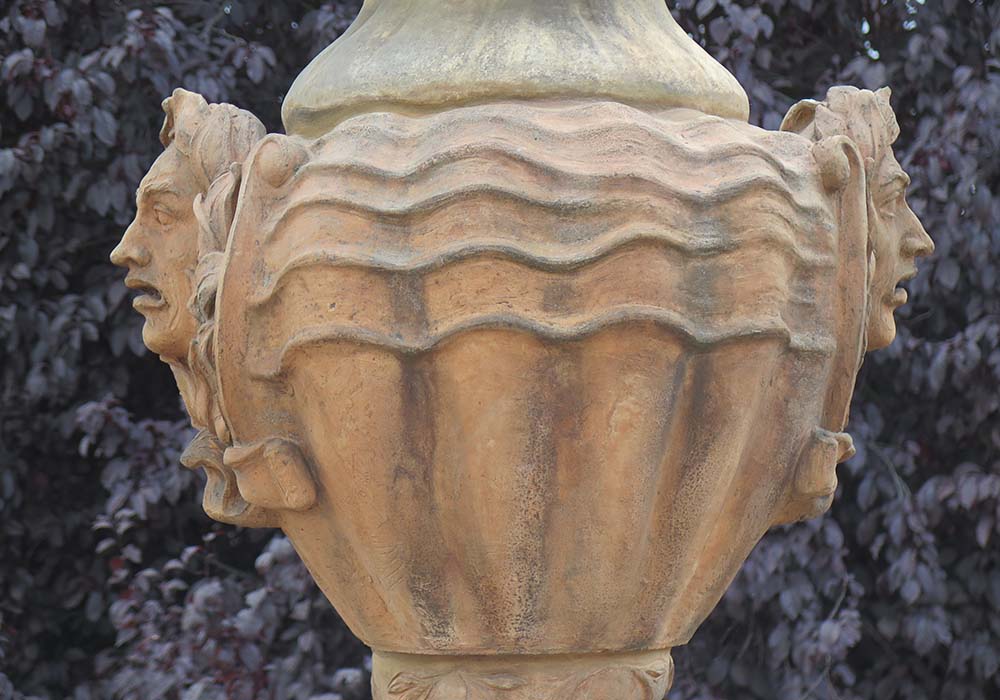The Word for a Bird
When I discovered that the word for “bird” in Polish is “ptak”, I decided that I had to learn the language. I was located in Bari at the time, in the Púglia region which forms the eastward-pointing heel of the Italian peninsula, teaching English language as a “lettore” at the languages faculty on Via Garruba. For the very first time in my life, age 23, I was living entirely on my own, in one half of a holiday villa in Palese, a village on the coast a half-hour bus ride from the city centre. Being alone, I found, with no possibility of unexpected interruptions, gave a different quality to one’s thought processes. There was definitely sufficient room inside my head to accommodate some Polish.
It was not the beginning of my interest in, or involvement with, the language and the associated culture. At Cambridge I had a dear friend named Damian Carr, who became a doctor. His father was English, but his mother was the daughter of a Polish woman with a Hassidic background and the only general to lead an offensive action, on horseback, against the invading German tanks in 1939. I have not forgotten declaiming to Damian, in his student digs off Gower Street in London, Miron Białoszewski’s hilarious poem about the loss of a stove, in the translation by Czeslaw Miłosz: ‘I have a stove/ similar to a triumphal arch!// They take away my stove/ similar to a triumphal arch!!// They took it away./ What remains is/ a grey/ naked/ hole’. I subsequently learned that Białoszewski was gay. Was that what drew me so unswervingly to his poem?
Polish classes at the faculty in Bari were given by Jerzy Pomianowski who, like many professors, travelled down from Rome each week. So did the professor of German, Aloisio Rendi, a rather grim, bespectacled figure who committed suicide not long after I left. They were surrounded over lunch and during any free time in their weekly visits by an admiring group of followers and aspirants. The air of the metropolis and of other, far off lands they brought with them was extremely precious in the vernacular isolation of Bari.
I do not think I know the half of Pomianowski’s adventurous life, for example during the war when, as a Jew escaping to the Soviet Union, he had to negotiate the harshness of Stalinist dictates in his work as a journalist. One day he told me sternly that he did not believe in the concept of ‘collective responsibility’. I had no idea what he was talking about, or what debate this particular, momentous phrase could form a part of. His life companion was a strikingly beautiful actress named Aleksandra Kurczab, also Jewish. Once she observed to me, in the back of the car in which we were negotiating the Roman traffic: ‘Christopher, what hope can there possibly be for a language in which “love” is “mee-woshch” and “the moon” is “ksheng-zhich”?’ I had in fact first seen Aleksandra onstage, when she figured in a production by Giorgio Pressburger based on Proust’s novel, during which the entire cast processed repeatedly in turn of the century costumes down a majestic staircase to the strains of Berlioz’ Grande symphonie funèbre et triomphale.
The two were good friends of the exiled writer Maria Kuncewiczowa. I ended up going together with this woman and her husband to midnight mass at Christmas in the Church of the Aracoeli on the Palatine, where a doll of the child Jesus is displayed to the excited faithful. Some time later, Jerzy and Aleksandra showed me with relish the passage in Kuncewiczowa’s published diaries where she describes attending mass in Rome in the company of a Scottish Calvinist. If only she had known that, with my Jesuit education and my background in the Glasgow Irish immigration, I was what they call ‘more Catholic than the Pope’!
Pomianowski was an altogether more jovial and approachable figure than Rendi. He organised an evening in my half of the seaside bungalow where a group of his students spent what felt like laborious hours grating potatoes, in order to fry traditional Polish potato cakes. Unfortunately we were not skilled enough to drain the mixture properly of water. The whole business was a distressing failure which left us not just exhausted and frustrated, but also hungry.
Lidia Signorile, if not a colleague, was at any rate a friend and helper of Pomianowski’s, who would later inform me that another member of the Polish class had told her: ‘Just watch. I am going to marry that Scotsman.’ Her chances of success were small. As well as being the stage at which I began learning Polish, that Bari spring marked my period of gay activism. I became a member of a group known as FUORI, which means “out” in Italian, but is also an acronym standing roughly for Union of Revolutionary Italian Homosexuals. Do not forget that this was 1976! Reports of Paris in May 1968 were fresh in our memories. One of our more entertaining projects, which we never put into practice, was to organise a “kiss-in”. Antonioni’s Zabriskie Point was still a cult film. The idea was for a group of us to” invade” a straight disco, go onto the dance floor, and start kissing one another provocatively in full view of all those present. No one at the faculty ever challenged me about my militancy, which was actually reported in the newspapers. ‘Chris, a Scottish man living in Bari’ was enough to give the game away. The situation elicited from Lidia an unforgettable remark: ‘You have to understand that, in Bari, everyone knows everything about everybody else. Plus a further 25% which is pure invention’.

Attending my first ever FUORI meeting had its comical side. I saw a notice pinned up in the entrance corridor to the faculty and decided that the time was at hand to do some experimenting. Who was ever going to discover, in Glasgow or even in Rome, what I had got up to while teaching in Bari? When it came to the point, I walked up and down in the street outside for fully 20 minutes, doing my best to summon up the courage to go in. Technically, where men were concerned, I was still more or less a virgin at that stage (these things are never absolutely black and white). My fantasy was that I would walk through the door and immediately get laid. I’d be hard put to it to say whether the prospect excited or appalled me. Perhaps the first emotion was predominant. And of course, when I did go in, longwinded and cavilling political discussions were what I found in progress. No hope of an orgy. In Italian, the word for a man is “uomo”, and the word for “homosexual” is “omosessuale”, without the initial “u”. After all, the implication of “omo” is “the same”. One of the group insisted on saying “uomosessuale”, which was perfectly logical and distinctly appealing. Nobody bothered to correct him. For him, it meant somebody who preferred to have sex with a man.
Moving to Rome, and starting work as a “lettore” at the La Sapienza university in the huge, fascist-style campus of the Città Universitaria, did not diminish my interest in Polish. I enrolled for evening classes, where a fellow student became a dear friend and would subsequently occupy the chair of Polish on one of Rome’s new campuses. She fondly remembers me upbraiding her gently for failing to do her homework.
That summer – it was 1980 – I travelled to Cracow, determined not to abandon my plan of visiting Poland even though our teacher had failed to secure me a place on the summer language course. Incredibly, I was able to buy a railway ticket which took me from Rome via Vienna to Cracow, and then via Budapest and Belgrade on to Thessaloniki in Greece, where my Italian partner would be attending the language course he had chosen. The cost was minimal and I was allowed to stop off wherever I wanted on the way.
Paola, another student at the evening classes, had given me the name of a certain Pani Jadwiga Stolfa who, she told me, would be more than happy to rent me a room in her flat if I said Paola had sent me. Memories of the train journey from Vienna to Cracow, my first experience of crossing the Iron Curtain, crowd my brain when I think back. You needed two distinct visas for crossing through Czechoslovakia, one for entering and one for leaving. Getting off the train was totally forbidden and would have been unthinkable. At the border, officials dutifully went along the carriages outside, beating on the metal casing to check no one and nothing was hidden behind.

Then came the seemingly interminable, melancholy forests of pine and birch across the Polish border. I had to get off at the industrial centre of Katowice and wait there for another train. Everything was so grimy and miserable it felt like living in black and white, or rather, sepia grey. The whole enormous station building was permeated by a penetrating odour of pee. I arrived in Cracow too late to trouble Pani Stolfa, so checked in at the youth hostel for the night. When I took my luggage upstairs to the dormitory, a distinctly attractive youth followed me, sat down on a bed opposite and said that, if there was anything I felt unhappy about, or did not like in my surroundings, I should tell him, and he would see to it. Can he possibly have been working for the police?
Though that was the summer of 1980, nothing concerning the unrest in the shipyards at Gdansk percolated through to me in Cracow. Using a guide written in German, I painstakingly explored the historical centre of the city and the former Jewish ghetto, took an organised trip to the salt mines at Wieliczka and another to the Tatra mountains. And in a shop on the main square, I came upon a vinyl recording of Szymanowski’s First Violin Concerto with Wanda Wilkomirska as the soloist and Antoni Wit conducting. A further door had opened on the richness of Polish culture in the 20th century. And not only then.


